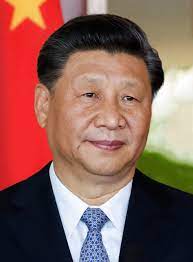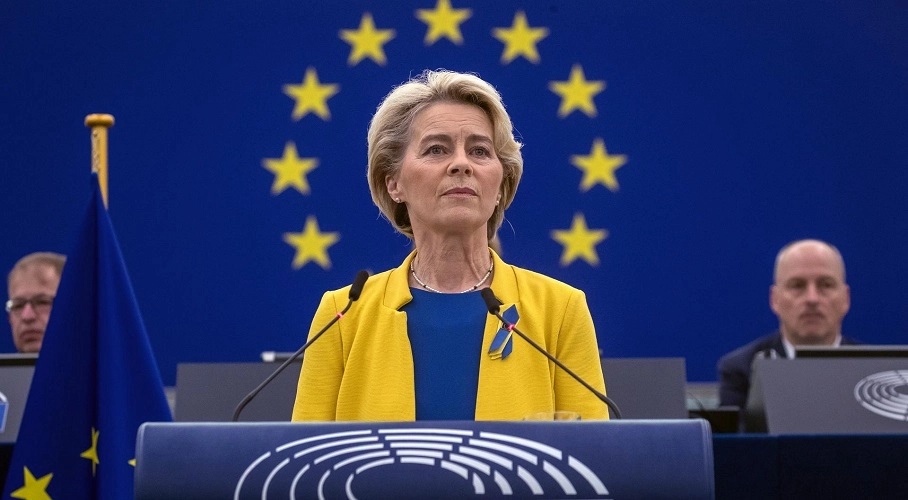Yesterday, the commencement of the anti-subsidy procedure concerning protection against subsidized battery electric vehicle (BEV) imports from China was officially announced.
The President of the European Commission, Ursula von der Leyen, announced this investigation on September 13th, as the incentives provided by the Chinese government lead to “artificially low” prices for Asian BEVs, putting European automakers at a disadvantage.
How is the procedure organized? Below is a summary provided by Mobility Portal Europe.
1. Market information
The Commission has gathered market information indicating that Chinese electric vehicle imports are benefiting from subsidies, causing them to increase.
This poses a threat to the European industry.
The Commission has sufficient evidence to initiate an anti-subsidy investigation without requiring a written complaint from the EU industry.
European producers are encouraged to cooperate.
2. Research Subject Product
The product under investigation is the new BEVs designed for the transportation of nine or fewer persons, powered by one or more electric motors.
Motorcycles are excluded.

3. Subsidy Test
This is a subsidy test examining Chinese electric cars classified under NC code 8703 80 10.
Evidence of various subsidy practices has been found, including fund transfers, loan grants, export credits, and preferential credit lines, among others.
These subsidy schemes appear to involve financial contributions from the Chinese government or other regional governments, as well as private entities under their direction, benefiting their recipients.
4. Threat of Harm and Causality Evidence
The threat of harm and causality evidence indicates that subsidies for Asian BEVs are harming the EU industry.
These subsidies favour various aspects of vehicle production and sales, which is likely to continue negatively impacting the European industry’s economy.
Subsidized imports have significantly increased, and it is likely that imports will continue to rise in the future.
Subsidized import prices are significantly lower than those in the EU, putting pressure on local industry sales, market share, and profit margins.
This could even lead to unsustainable losses for the European industry.
This is concerning as the EU needs to boost BEV sales to maintain competitiveness in the transition towards electromobility.
5. Procedure
The investigation will ascertain whether the product under scrutiny is being subsidized and if subsidized imports are causing harm to the European Union industry.
All interested parties wishing to comment on the file or any aspect related to the initiation of the investigation must do so within 37 days from the date of publication of this Notice.
Any request for a hearing must be submitted within 15 days from the date of publication of this Notice.
Chinese BEV exporting producers and the authorities of the concerned country are invited to participate in the procedure.
Investigating exporting producers
The document outlines the procedure for selecting exporting producers to be investigated in the country of origin.
It mentions the possibility of conducting sampling to limit the number of producers to be investigated due to their large number.
These producers must complete a questionnaire about their companies.
The document also explains how producers not included in the sample can request an individual subsidy amount.
The Commission may choose not to determine an individual amount if the number of producers is excessively large.
Investigating unrelated importers
The document outlines the procedure for investigating unrelated importers bringing BEVs from China to the EU.
Given the large number of entities involved, the possibility of conducting sampling to select a reasonable number is considered.
They must provide information about their companies within 7 days from the date of publication of the notice.
If sampling is decided, importers will be selected based on their sales volumes in the EU.
Those selected must complete a questionnaire within 30 days from the notification. Comments on the sample selection must be received within 3 days from the notification.
Procedure for Determining Injury and Investigating Union Producers
The determination of injury is based on positive evidence and examines the impact of subsidized imports on the European Union.
The participation of affected EU producers is requested.
To handle the large number of participants, sampling may be used.
Procedure for Assessing Union Interest
If subsidy and injury are established, a decision will be made regarding whether applying countervailing measures is in the interest of the EU.
Various stakeholders, including producers, importers, and trade unions, are invited to provide relevant information.
Stakeholders
To participate in the investigation, stakeholders must demonstrate an objective link to the product under investigation.
Those who have provided information will be considered stakeholders.
6. Investigation Timeline
- The investigation will conclude within 12 to 13 months from the date of publication of the notice.
- Provisional measures can be imposed up to nine months after the notice’s publication.
- The Commission will provide information about the planned imposition of provisional duties four weeks in advance.
- Interested parties will have three business days to comment on the accuracy of the calculations.
- When the Commission does not intend to impose provisional duties but instead continues the investigation, it will inform the interested parties in writing four weeks before the deadline.
- Interested parties will have fifteen days to comment on provisional findings or the information document, and ten days to comment on final conclusions, unless otherwise specified.
- Additional final disclosures will include the deadline for interested parties to submit written comments.
7. Submission of Information
- Interested parties must submit information within the specified deadlines in sections 5 and 6.
- Information for provisional conclusions: Within 70 days from the date of publication of the notice unless otherwise specified.
- Restrictions on new factual information: New information will not be allowed after the deadline for commenting on provisional disclosure or the information document in the provisional stage unless it is necessary to refute factual allegations from other parties and can be verified in time.
- Deadline for submitting information: The Commission will not accept submissions after the deadline for commenting on the final disclosure.
8. Comments on Presentations by Other Parties
Interested parties have the right to comment on information presented by other parties, but only in relation to the issues raised.
No new issues are allowed.
- Comments before the imposition of provisional measures: Within 75 days from the date of publication of the notice.
- Comments on information in response to provisional conclusions or an informative document: Within 7 days after the deadline for commenting on provisional conclusions or the informative document.
- Comments on information in response to final conclusions: Within 3 days after the deadline for commenting on final conclusions, unless specified otherwise. If there is additional final disclosure, comments must be made within 1 day after the deadline for commenting on this additional disclosure.
The deadline does not affect the Commission’s right to request additional information in duly justified cases.
9. Extension of Deadlines
Extensions of deadlines should only be requested in exceptional circumstances and will only be granted if properly justified and good cause is demonstrated.
Any extension of the deadline to respond to questionnaires will normally be limited to 3 days and will not exceed 7 days.
As for deadlines for the submission of other specified information in the notice, extensions will be limited to 3 days unless exceptional circumstances are demonstrated.
10. Non-Coperation
In cases where any interested party denies access to necessary information, fails to provide it within the specified deadlines, or significantly hinders the investigation, provisional or definitive conclusions, whether positive or negative, may be drawn based on available facts, in accordance with Article 28 of the basic Regulation.
If it is determined that any interested party has provided false or misleading information, such information may be disregarded, and available facts may be used.
If an interested party does not cooperate, and as a result, conclusions are based on available data in accordance with Article 28 of the basic Regulation, the outcome may be less favorable for that party than if they had cooperated.
Failure to respond promptly will not be considered non-cooperation, provided that the interested party demonstrates that submitting the response as requested would result in an unreasonable additional burden or cost.
11. Hearing Officer
Stakeholders can request the involvement of the Hearing Officer in commercial matters.
The Hearing Officer reviews requests for access to files, disputes over document confidentiality, deadline extension requests, and other issues related to the rights of defense.
They can also organize hearings and mediate between stakeholders and the Commission to ensure the rights of defense.
Hearing requests must be in writing and state the reasons, and submitted promptly and expeditiously to avoid disrupting the orderly process.
Hearings only occur if issues aren’t resolved with the Commission in a timely manner.








